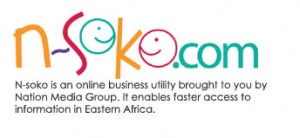
“Your website may very well be the most powerful tool in your marketing kit. Not only is it the place prospects and clients go to learn more about you and your services, but it has a huge impact on their ultimate purchase decision. In fact, only 3% of the 200 buyers surveyed – from companies of all sizes – say a provider’s website has no influence whatsoever over their purchase decision.
The survey was conducted by RainToday.com and included more than 200 buyers responsible for more than $1.7 billion in professional services purchased, such as accounting and financial consulting; architecture, engineering, and construction services; human resources consulting; IT consulting and services; legal services; management consulting; marketing, advertising, and public relations; and training services.” – HubSpot
So, yeah, even as you are working on Facebook, Twitter, or anything else to market your business online, do note that the most important tool in your arsenal is your website. Spend more time and money on it than on anything else!
 So this week saw the arrival of
So this week saw the arrival of